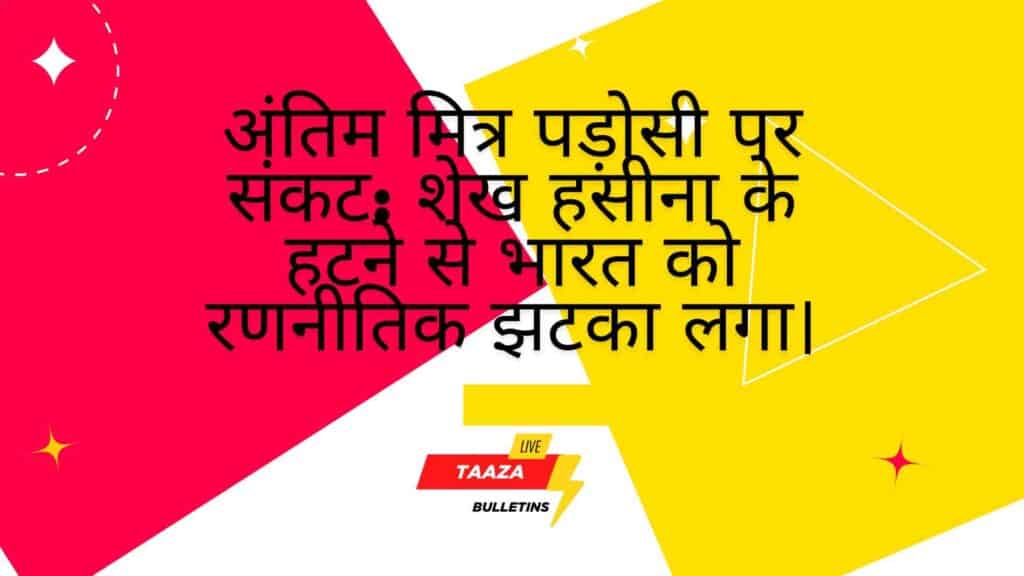Musk’s Victory in India’s Satellite Spectrum Paves the Way for a Price War with Ambani.
Table of Contents
The competition between two of the wealthiest individuals globally, Elon Musk and Mukesh Ambani, is escalating as they prepare to enter India’s satellite broadband sector.


The recent announcement by the Indian government regarding the administrative allocation of satellite spectrum for broadband, rather than through an auction process, has intensified this rivalry.
Mr. Musk has previously expressed his disapproval of the auction model that Mr. Ambani supports.
Satellite broadband offers internet connectivity across the entire coverage area of the satellite, making it a dependable solution for remote or rural regions where conventional services such as DSL or cable are not available. This technology also plays a crucial role in addressing the challenging digital divide.
India’s telecommunications regulator has yet to disclose the pricing for the spectrum, and commercial satellite internet services have not yet commenced.
Nevertheless, it is anticipated that the number of satellite internet subscribers in India will reach two million by 2025, as per projections from the credit rating agency ICRA.
The market is highly competitive, featuring approximately six major players, with Mr. Ambani’s Reliance Jio at the forefront.
Having invested significantly in airwave auctions to establish dominance in the telecom industry, Jio has now formed a partnership with SES Astra, a prominent satellite operator based in Luxembourg.
In contrast to Mr. Musk’s Starlink, which utilizes low-Earth orbit (LEO) satellites situated between 160 and 1,000 kilometers from the Earth’s surface for enhanced service speed, SES operates medium-Earth orbit (MEO) satellites at a considerably higher altitude, providing a more economical system. Ground-based receivers capture satellite signals and convert them into internet data.
Mr. Musk’s Starlink currently operates 6,419 satellites in orbit and serves four million subscribers across 100 nations. Since 2021, he has sought to initiate services in India; however, regulatory challenges have resulted in delays.
Should his company successfully enter the Indian market, it is anticipated to enhance Prime Minister Narendra Modi’s initiatives to attract foreign investment, according to many observers.
Additionally, this move would support the government’s efforts to improve its pro-business image, countering assertions that its policies favor prominent Indian industrialists such as Mr. Ambani. While previous auctions have proven profitable for the government, it defends its current decision to allocate satellite spectrum through administrative means, asserting that this approach is consistent with international standards.
Typically, satellite spectrum is not allocated via auctions due to the potential financial implications that could deter investment, as noted by Gareth Owen, a technology analyst at Counterpoint Research. In contrast, administrative allocation aims to ensure equitable distribution of spectrum among “qualified” entities, thereby providing Starlink an opportunity to participate in the market.
However, Mr. Ambani’s Reliance argues that an auction is essential to guarantee fair competition, citing the absence of clear legal guidelines in India regarding the direct provision of satellite broadband services to consumers.
In correspondence with the telecom regulator earlier in October, which has been reviewed by the BBC, Reliance consistently advocated for the establishment of a “level playing field between satellite-based and terrestrial access services.”
The company also pointed out that “recent advancements in satellite technologies… have significantly blurred the lines between satellite and terrestrial networks,” emphasizing that “satellite-based services are no longer limited to areas lacking terrestrial coverage.” One letter indicated that spectrum allocation is typically conducted through auctions under India’s telecommunications regulations, with administrative allocation permitted only in circumstances of “public interest, government functions, or technical or economic reasons that preclude auctions.”On X, Mr. Musk emphasized that the spectrum had long been designated by the International Telecommunication Union (ITU) as shared spectrum for satellites. The ITU, a United Nations agency responsible for digital technology, establishes global regulations, and India is a member and signatory to these agreements.
In response to a report by Reuters indicating that Mukesh Ambani was advocating for the government to reassess its stance, Mr. Musk commented on a post on X, stating, “I will call [Mr. Ambani] and inquire if it would be too much trouble to permit Starlink to compete in providing internet services to the people of India.”
Mr. Ambani’s opposition to the administrative pricing model may be driven by a desire for strategic advantage, as suggested by Mr. Owen. The business magnate could be “prepared to outbid Musk,” potentially utilizing an auction to exclude Starlink from the Indian market.
However, Mr. Ambani is not the only one endorsing the auction approach.
Sunil Mittal, chairman of Bharti Airtel, has asserted that companies intending to cater to urban, high-end customers should “obtain telecom licenses and purchase spectrum like everyone else.”
Mr. Mittal, who leads India’s second-largest wireless operator, along with Mr. Ambani, commands 80% of the nation’s telecom market.
This resistance is viewed as a “defensive move aimed at increasing costs for international players perceived as long-term threats,” according to telecommunications expert Mahesh Uppal.
“While satellite technologies do not pose immediate competition, they are advancing rapidly. Telecom companies in India with substantial terrestrial operations are concerned that satellites could soon become more competitive, challenging their market dominance.”
The stakes are significant, particularly given the potential of the vast Indian market. Nearly 40% of India’s 1.4 billion population remains without internet access, predominantly in rural areas, as reported by EY-Parthenon, a consulting firm.
For comparison, China boasts nearly 1.09 billion internet users, which is approximately 340 million more than India’s 751 million, according to DataReportal, which monitors global online trends.
India’s internet adoption rate remains below the global average of 66.2%, yet recent research indicates that the nation is progressively narrowing this disparity.
If priced appropriately, satellite broadband could play a significant role in bridging this divide and may also contribute to the Internet of Things (IoT), which connects everyday devices to the internet, enabling them to communicate with one another.
Pricing will be a critical factor in India, where mobile data is among the most affordable worldwide, costing merely 12 cents per gigabyte, as noted by Modi.
“A price war with Indian operators is unavoidable. Musk has substantial financial resources. There is no reason he cannot provide a year of complimentary services in certain areas to establish a presence in the domestic market,” states Prasanto K Roy, a technology analyst. Starlink has already reduced prices in Kenya and South Africa.
However, challenges may arise. A 2023 report by EY-Parthenon highlighted that Starlink’s costs, nearly ten times higher than those of leading Indian broadband providers, could hinder its ability to compete without government assistance.
The requirement for a greater number of Low Earth Orbit (LEO) satellites, like those utilized by Starlink, to achieve global coverage, as opposed to Medium Earth Orbit (MEO) satellites, escalates both launch and maintenance expenses.
Moreover, some concerns expressed by Indian operators may be misplaced.
“Businesses will not fully transition to satellite unless terrestrial options are unavailable. Terrestrial networks will consistently be more economical than satellite, except in sparsely populated areas,” remarks Mr. Owen.
While Mr. Musk may enjoy a first-mover advantage, “satellite markets are notoriously slow to evolve.”
The competition between two of the wealthiest individuals in the world over the internet in space has indeed commenced.
Satellite Internet in India Potential
In India, a high-speed broadband plan based on Reliance Jio fibre is available for $10 per month, with a complimentary router provided for long-term subscriptions. The company holds a 30% share of the wired broadband market.
Starlink intends to introduce an unlimited internet data plan in India, initially focusing on corporate clients, according to a second industry source familiar with the situation.
Neither Reliance nor Starlink responded to inquiries from Reuters.
With 42 million wired broadband users and 904 million telecom users utilizing networks such as 4G and 5G, India ranks as the second-largest telecom market globally, following China.
As of early 2024, internet penetration in India was reported at 52.4%, according to DataReportal, with 25,000 villages still lacking internet access. Additionally, many urban areas do not have access to fibre-based high-speed internet services.
Last year, Musk stated that Starlink could be “incredibly helpful” in remote Indian villages or regions lacking high-speed connectivity. His former head in India mentioned in 2022 that Starlink aimed to acquire 200,000 customers within eight months of its launch. Furthermore, Starlink has announced plans to deploy a constellation of hundreds of satellites globally to facilitate “direct to cell” voice and data services in the coming years.
Gareth Owen, associate director at research firm Counterpoint, noted that concerns regarding Musk may be exaggerated, as “terrestrial networks will always be less expensive, and businesses will never completely transition to satellite.”
Currently, even before the competition intensifies, the rivalry between Musk and Ambani is becoming increasingly evident.
A recent Reuters report indicated that Ambani was once again advocating for the auction of satellite spectrum in New Delhi to ensure a “level playing field,” which caught Musk’s attention after a social media user inquired whether Ambani was apprehensive about Musk potentially disrupting his telecom empire.
In response, Musk humorously remarked on X, “I will call (Ambani) and ask if it would not be too much trouble to allow Starlink to compete to provide internet services to the people of India.”




